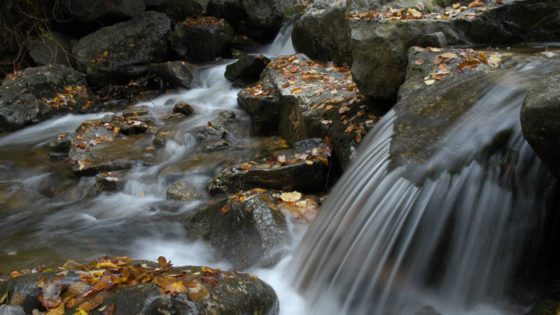Position Description
Stroud Water Research Center seeks a postdoctoral associate to study molecular microbial ecology in aquatic and terrestrial environments. The preferred candidate will have a Ph.D. in microbial ecology with expertise in comprehensive molecular techniques including but not limited to high-throughput sequencing, qPCR, and metagenomics.
The ideal candidate should:
- Have core competencies in molecular microbial ecology.
- Have a strong basic and theoretical understanding of microbial ecology and be able to integrate biological, geological, and chemical sciences.
- Possess a strong publication record.
- Have a proven ability to work collaboratively with a multidisciplinary team.
- Be flexible about field/lab work, data processing, and writing beyond routine work hours.
- Be knowledgeable about the emerging technologies within the discipline.
Expectations
- The successful candidate will participate in multiple projects funded by the National Science Foundation, the U.S. Department of Agriculture, and other funding agencies.
- Work will include field and laboratory work, but the primary focus will be analyzing existing datasets and preparing manuscripts for peer-reviewed publication.
- As an integral part of the Stroud Center’s postdoctoral mentor/development plan, the postdoctoral associate will also be able to participate and assist in grant proposals for additional funding.
- Experience with bacterial monitoring, aquatic ecology, soil health, or bioinformatics is a plus.
- The successful candidate will be expected to work collaboratively with other Stroud Center senior scientists, postdocs, technical staff, graduate students, external partners, and colleagues (e.g., the University of Delaware and the University of Pennsylvania).
- This full-time, salaried position requires daily in-person activity on the Stroud Center campus. Some weekends and early/late working conditions may occasionally be necessary, including the potential for overnight travel.
Employment Requirements and Process
Applications will be accepted until the position is filled. Applicants with approved work permits in the United States will be given priority. To apply, please use the form below to upload a cover letter, curriculum vitae/resume, and names and contact details of three professional references, preferably as a single attachment. Finalists will be interviewed in person or by video conference.
Salary and Benefits
The Stroud Center will provide a competitive salary based on the candidate’s experience and qualifications. This is a full-time position including a comprehensive employee benefit plan. Funding for this position is secured for at least two years, and extension is contingent on performance and additional grant support.
Apply Now
Please use the form below to upload a cover letter, curriculum vitae/résumé, and names and contact details of three professional references, preferably as a single attachment. Finalists will be interviewed in person or by video conference.
About Stroud Water Research Center
Stroud Water Research Center advances knowledge and stewardship of fresh water through global research, education, and watershed restoration and helps businesses, landowners, policymakers, and individuals make informed decisions that affect water quality and availability around the world. Since its creation in 1967, teams of scientists have conducted pioneering research on streams and rivers locally, regionally, and throughout the world. Today, the Stroud Center’s research team blends its talents in biogeochemistry, microbiology, aquatic entomology (insects and other invertebrates), ichthyology (fish), hydrology, fluvial geomorphology, and ecosystem modeling in collaborative studies of the physical, chemical, and biological processes of streams and rivers. The Stroud Center’s education staff helps to interpret research findings and creates education programs about freshwater ecology, management, and stewardship for a wide audience. The Stroud Center’s Robin L. Vannote Watershed Restoration Program develops and implements watershed restoration projects that connect landowners, stakeholders, and the general public with best management practices for conserving, restoring, and protecting watersheds. While we work in watersheds all over the world, most of our ideas are generated and tested at the Stroud Center’s main campus in the White Clay Creek experimental watershed where the Stroud Center has a more than 50-year research and monitoring record within a unique facility that includes indoor “wet” labs and streamside flumes fed by flowing water pumped in from the creek on the property. In 2012, the Stroud Center expanded its campus to 50 acres and constructed a LEED Platinum-certified building for education and public outreach, the Moorhead Environmental Complex.
Stroud Water Research Center is an independent, nonadvocacy 501(c)(3) not-for-profit organization and is an Equal Opportunity Employer.


